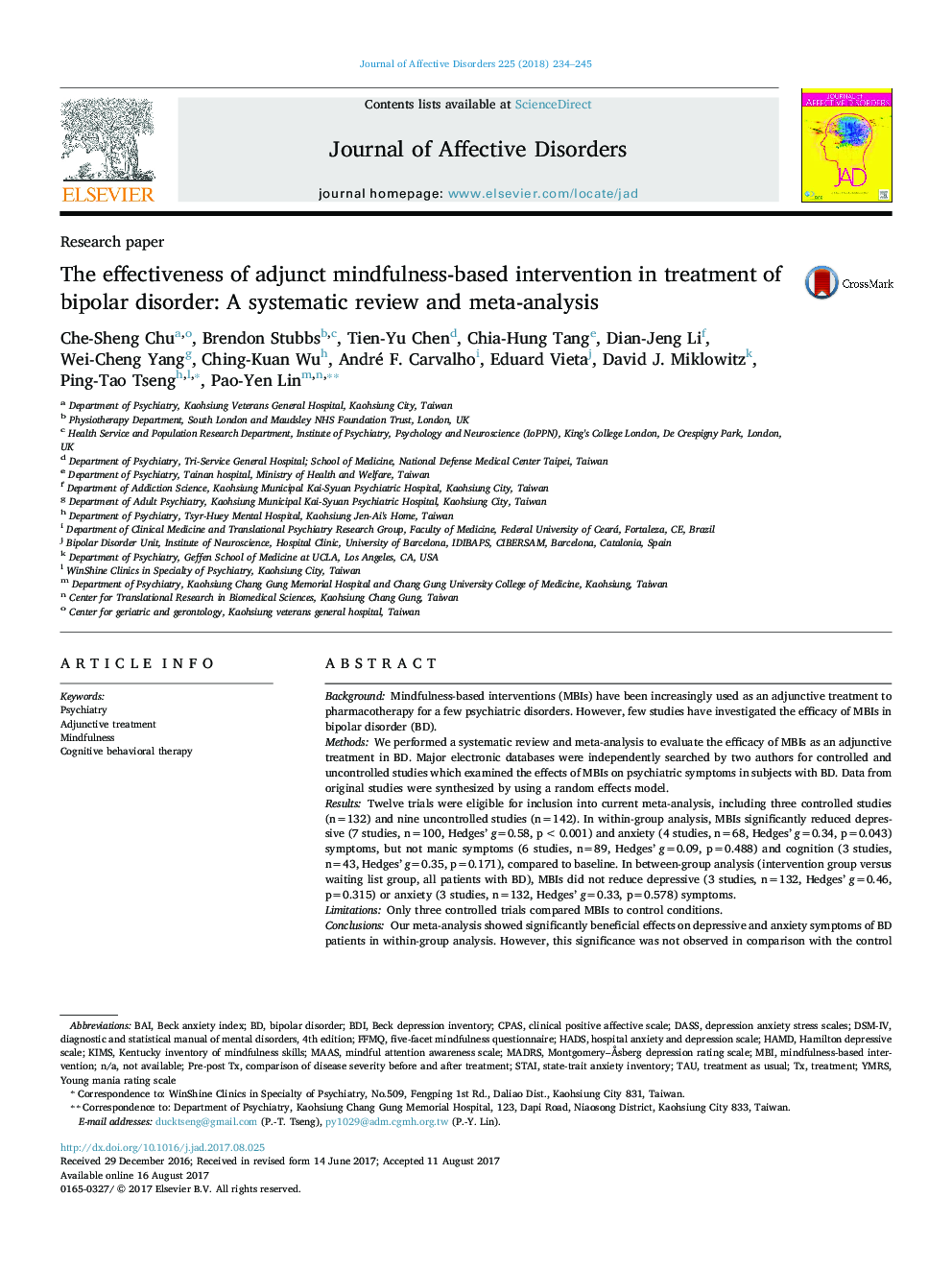| کد مقاله | کد نشریه | سال انتشار | مقاله انگلیسی | نسخه تمام متن |
|---|---|---|---|---|
| 5721714 | 1608100 | 2018 | 12 صفحه PDF | دانلود رایگان |
- MBIs have shown promise in improving health outcomes in psychiatric patients but not in bipolar disorder
- In pre-post-test analyses, MBIs reduced depressive symptoms, the severity of anxiety, and improved attention.
- Compared to controls, MBIs did not reduce depression, anxiety, or mania, which was limited to only a few studies.
BackgroundMindfulness-based interventions (MBIs) have been increasingly used as an adjunctive treatment to pharmacotherapy for a few psychiatric disorders. However, few studies have investigated the efficacy of MBIs in bipolar disorder (BD).MethodsWe performed a systematic review and meta-analysis to evaluate the efficacy of MBIs as an adjunctive treatment in BD. Major electronic databases were independently searched by two authors for controlled and uncontrolled studies which examined the effects of MBIs on psychiatric symptoms in subjects with BD. Data from original studies were synthesized by using a random effects model.ResultsTwelve trials were eligible for inclusion into current meta-analysis, including three controlled studies (n=132) and nine uncontrolled studies (n=142). In within-group analysis, MBIs significantly reduced depressive (7 studies, n=100, Hedges' g=0.58, p<0.001) and anxiety (4 studies, n=68, Hedges' g=0.34, p=0.043) symptoms, but not manic symptoms (6 studies, n=89, Hedges' g=0.09, p=0.488) and cognition (3 studies, n=43, Hedges' g=0.35, p=0.171), compared to baseline. In between-group analysis (intervention group versus waiting list group, all patients with BD), MBIs did not reduce depressive (3 studies, n=132, Hedges' g=0.46, p=0.315) or anxiety (3 studies, n=132, Hedges' g=0.33, p=0.578) symptoms.LimitationsOnly three controlled trials compared MBIs to control conditions.ConclusionsOur meta-analysis showed significantly beneficial effects on depressive and anxiety symptoms of BD patients in within-group analysis. However, this significance was not observed in comparison with the control groups. Further clinical trials are warranted to investigate the differences in the benefits of MBIs between treatment and control subjects.
Journal: Journal of Affective Disorders - Volume 225, 1 January 2018, Pages 234-245
